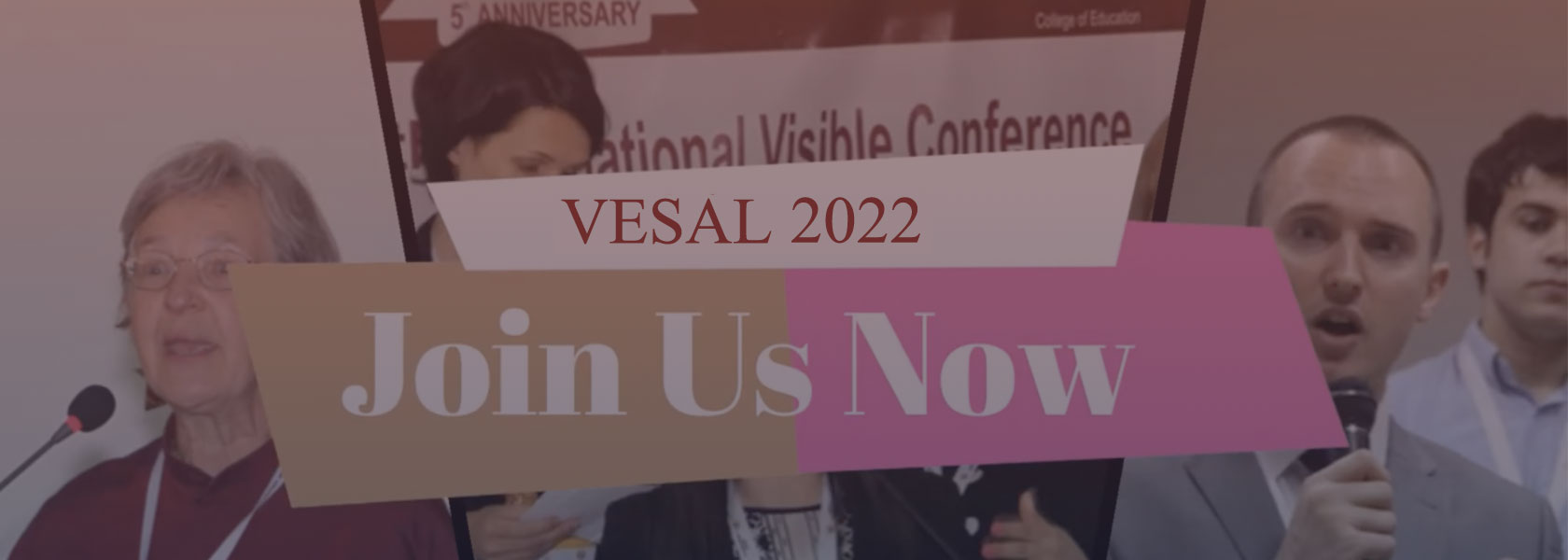
The Use of Discourse Markers in EFL Classrooms: Challenges and Solutions
Rashwan Ramadan Salih
College of Education, Department of English, Salahaddin University – Erbil
DOI: http://doi.org/10.31972/vesal12.03
Abstract
This paper investigates the effect of using discourse markers on the writing skills of Kurdish university students. By revising the related literature, it appeared that so far there is no consensus on the actual effect of the explicit presence of discourse markers on foreign language writing. Many studies concluded that different discourse markers have different effects on the writing of foreign language learners (Morell, 2004; Ying, 2007; Castro and Marcela 2009; Dariush and Mohamad 2015, etc.). The current research tries to find out if there are any cross-linguistic factors that could cause issues for students in EFL modules. Data for the current study were collected from essays written by Kurdish students at the English Department in Salahaddin University, Erbil. In total, 20 essays were received with total of 19872 words and total 261 DMs were found in the data. A mixture of quantitative and qualitative methods was used to analyse the data. The raw frequencies of the DMs were: Additive (101 = 0.5 %), Adversative (45 = 0.22 %), Causal / Conditional (83 = 0.4 %), and Temporal (32 = 0.16 %). The findings suggested that level of attention to and appropriate use of discourse markers were significantly unbalanced, and various misuses were found. Sample errors in using the DMs were selected for a qualitative analysis. It is recommended that discourse markers are taught individually not in groups with more focus on the more difficult discourse marker types.
Key words: TEFL, Writing, Discourse Markers,

Rekan Rasheed Ismail1
College of Education, Department of English, Salahaddin University-Erbil
eden03418@student.su.edu.krd
Nawsha Ghaleb2
College of Education, Department of English, Salahaddin University-Erbil
nawsha.shareef@su.edu.krd
DOI: http://doi.org/10.31972/vesal12.02
Abstract
Minor changes and improvements have been made to syllabi in the universities in Erbil-Kurdistan over the years. Hence, this research aims to bring to light the need for student-centered syllabus in Erbil- Kurdistan. It further aims to find out the degree to which the syllabi of syntax class are student-centered, assess the items mentioned in the syntax syllabi, and identify the frequency range of the existing student-centered factors. Additionally, it identifies the items in the syllabi that need to be modified towards a more student-centered format. Document review is adopted as a quantitative research tool for collecting data. 15 syllabi of syntax class have been collected in 8 public and private universities in Erbil-Kurdistan. To assess the learner-centeredness of the collected syllabi, the researchers adapted Cullen and Harris’ (2009) rubric in accordance to the syllabi in the universities in Kurdistan. The results show that syllabi of syntax class in the public and private universities in Erbil-Kurdistan are teacher-centered to a high degree. Moreover, the findings also show that the syllabi of syntax class would sound more student-centered if teachers start working on certain elements in their syllabi, such as accessibility of teacher, learning rationale, teacher’s role, student’s role, grades, feedback mechanisms, and revision/redoing. The results will benefit all the teachers in Erbil-Kurdistan and show them a clear picture of the state of their syllabi in terms of student-centeredness and encourage them to work on certain aspects in their syllabi to design a more student-centered syllabus.
Key Words: Student-Centered Syllabus, Syllabus Assessment, Syllabus Design, Syntax Class, Teacher-Centered Syllabus.

The Effects of Code-switching on Teaching English from EFL Students’ Perspective
Sangar Othman Ibrahim.
Department of English, College of Languages/ Salahaddin University- Erbil.
DOI: http://doi.org/10.31972/vesal12.01
Abstract
The title of this academic study is ‘The Effects of Code-switching on Teaching English from EFL Students’ Perspective. The main purpose of this study is to shed light on the effects of code-switching in teaching. The main research questions of this study are what are the main purposes and benefits of code-switching in teaching?
To obtain data, for this study an open-ended questionnaire is used. The participants are 120 senior students at Salahaddin University-Erbil/ College of Languages and College of Education/ English Departments and Lebanese French University/ College of Languages and College of Education/ English Departments. The senior students were required only to take part in the questionnaire intentionally because when students reach the final year of their study at university; they know and understand very well in what year at university while studying the students will need to switch codes from the language of instruction to the their first language. To analyse the obtained data, the mixed methods research approach involving both quantitative and qualitative methods was used by the researcher.
This study concluded that code-switching has some advantages for the freshman students; they switch codes from the language of instruction to their first languagebecause of some reasons. First, they do not want to face misunderstanding when they are in communication with their instructors in teaching and learning. Second, freshman students switch codes when they want to focus on some information. Third, they switch codes not to interrupt the discussion. Fourth, they switch codes for using of the native equivalent words in the language of instruction. Fifth, performing code-switching in teaching helps freshman students to learn new words and terms easily and quickly in the language of instruction . Sixth, when freshman students are allowed to switch codes, many of them are involved in daily activities. However, it should be noted that code-switching should not be done when the freshman students pass the first year because, if this happens in last years of the study; students are unable to learn and use the language of the instruction at their departments perfectly. Therefore, code-switching should be done in the first year of the study, but accurately and carefully.
Keywords: Code-switching, types of code-switching, reasons of code-switching, functions of code-switching, advantages of code-switching and disadvantages of code-switching.
